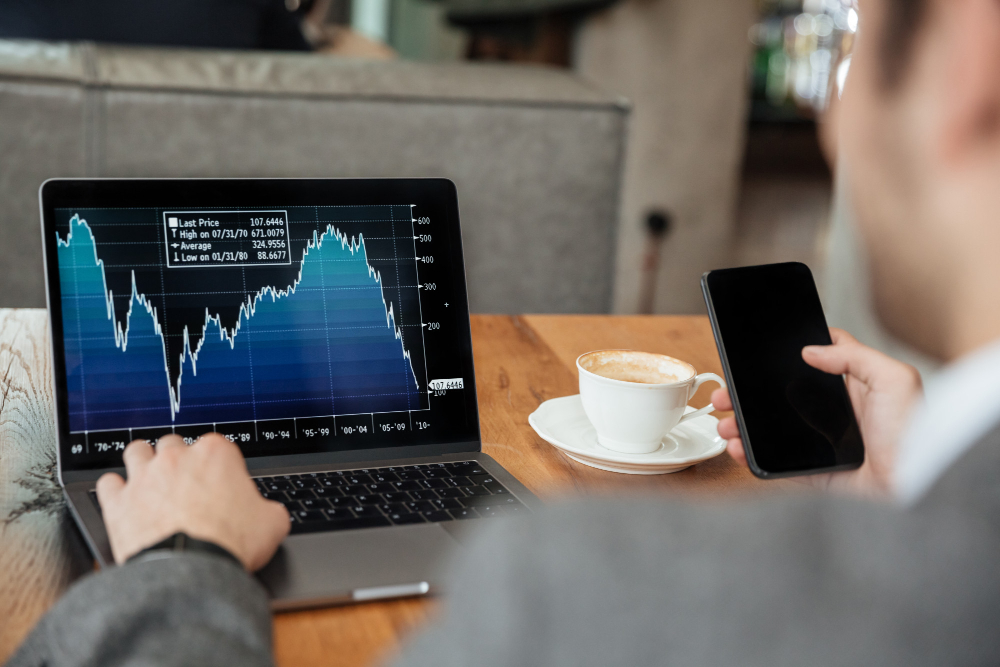Making mistakes is one of the biggest problems that private investors need to overcome. Active investors will make more mistakes than passive investors, especially when they start out, purely due to the fact that they make many more decisions.
The aim should be to minimise mistakes rather than trying to hit big winners.
Over time, seasoned active investors will reduce their mistakes, the number and the severity, dramatically. This is when they can streak ahead of the passive investor or managed fund investor.
Disengaging the game and / or continuous change of processes not based on research is one of the biggest errors that individual investors make. Other well-known errors that individual traders make are:
- buying too late/early,
- repeatedly placing too much capital in the wrong trades and too little capital in the right trades,
- not understanding the effect of brokerage in frequent trading,
- not matching their portfolio capital to the instrument that they are trading,
- selling too late/early,
- letting trades go that meet your entry criteria, and
- doing trades that don’t meet your entry criteria.
These mistakes are typically caused by:
- lack of process,
- little or no trust in their processes and /or their edge,
- not having a trading edge,
- being ill prepared (not doing sufficient research or not writing/completing a trading plan),
- lacking confidence at execution time,
- reacting to “noise”,
- fear (of losing, missing out, leaving money on the table or being wrong).
Of course, if you don’t have a defined edge or documented plan and processes then you won’t, by definition, make any mistakes! Driven by the deep seated subconscious need to be right, people procrastinate in defining their edge and processes such that, with no benchmark for determining right from wrong, they cannot be wrong. Furthermore, with no documented processes there is no order to be responsible to.
Having a loss trade is not a mistake
Having a loss trade is not a mistake if your stated processes are followed. Conversely, having a profit trade is a mistake if it resulted from breaking your processes and predefined rules. This is so because getting rewarded for doing actions that are outside your stated processes will breed hesitation and reservation about future trades which will ultimately lead to inconsistency by trying out new tactics on the run rather than executing proven processes in the heat of the moment.
In my view, a lack of knowledge is NOT one of the big mistakes that causes private investors to be unsuccessful. Most individuals that fail have sufficient knowledge to succeed, it is that they don’t transition their knowledge into a set of processes that are consistent and objective. There is always a new level to go to and one will never get there without engaging the game that they are playing. Waiting for newer or better knowledge before engaging is not the answer, nor is doing more analysis.
Focusing on the outcomes of individual trades is another error, as is putting too much significance on individual outcomes. When you focus on outcomes rather than process, too much meaning is put on the result which negatively affects execution which, in turn, provides an undesired outcome. The meaning of the execution needs to be removed and the focus must be on the process.
The instant that meaning is placed on the outcome, process breaks down, negative thoughts about the result filter into the mind, confidence wanes and before you know it execution is affected either by not doing the trade (and it soars) or by delaying entry (and it soars). Confidence is thinking about what you want to happen, not about what you don’t want to happen. It comes from preparation, trust, commitment to process and ongoing execution. Confidence cannot come from being a spectator watching others execute.



3 Responses
Will there be a pro forma trading plan put on your website that takes into account the recent system changes?
Terrific summary. No wonder so many trades fail when they they are either ‘ego led’ or consequence driven.
The most important saying i have ever heard as a chart trader is ‘ trade what you see, not what you believe(or wish for)’
Dear Gary, in more than a year of recieving The Gary Stone Journal, I have never read anything that I didn’t agree with, that wasn’t consistent and true, and I know exactly where you are coming from. I believe that what you have written here today is the Gospel of Trading. It is the whole story reduced to one page. If every trader/investor believed absolutely what you have written here, and practised it, they would all make money consistently. Unfortunately for them, they don’t believe it or internalise it. Out of all the books and blogs and newsletters I have read over the years of my trading life, you and Mark Douglas are the champions!
Mike Cullen
Heidelberg, Germany